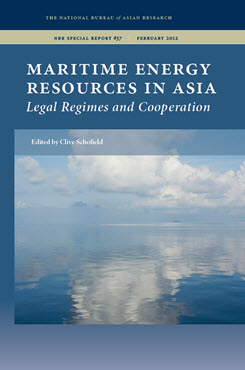Recent Practices in Dispute Management in the South China Sea
This essay describes the dispute situation in the South China Sea and adjacent areas and studies the advantages and disadvantages of various approaches to dispute management, with a special focus on China’s policy and practice.
EXECUTIVE SUMMARY
This essay describes the dispute situation in the South China Sea and adjacent areas and studies the advantages and disadvantages of various approaches to dispute management, with a special focus on China’s policy and practice.
MAIN ARGUMENT
Although there have been periods of tension among claimants, the South China Sea remains a reasonably stable area, and the maritime disputes are managed through various measures. A preference for bilateral approaches is evident and has resulted in both formal settlement and joint development arrangements. However, some bilateral disputes are still unresolved. Less tangible progress has been made in relation to multilateral disputes. Joint development has been proposed by some countries so as to shelve their territorial disputes for the short term in order to utilize nonliving resources. While the experiences gained from joint development in the Gulf of Thailand provide an alternative model for dispute management, such development has so far not occurred in the South China Sea proper. At the regional level, protracted negotiations resulted in the first regional document on the South China Sea, the Declaration on the Conduct of Parties (DoC) in 2002, followed by the Guidelines for the Implementation of the DoC in 2011.
POLICY IMPLICATIONS
- Bilateral efforts as well as regional initiatives, such as the 2002 DoC, are positive steps forward in terms of dispute management, but further efforts are needed.
- A correct assessment on the level of tension relating to the disputes in the South China Sea is crucial for dispute management in this area. The notion of a sharp increase in tension between claimants in the period 2009–11 cannot be substantiated, particularly not in comparison with developments in the 1990s.
- Progress made both in formal settlement and through other forms of management underscores the importance of the political will of the parties to the disputes for achieving results.
- The lack of progress can be attributed to the complexities involved in dispute situations and to a lack of political will among the parties to address the core dimensions of dispute situations.
- Aborted attempts at settling disputes or pursuing joint arrangements may result from the domestic politics of one or more of the parties involved.


